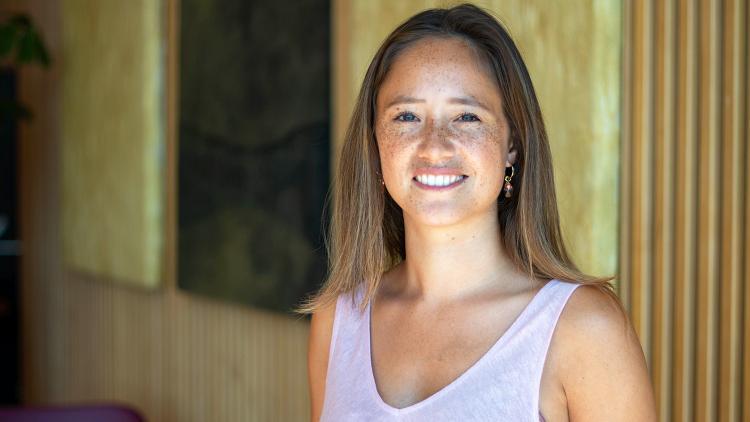First-generation student Charisma:
'We didn’t read any books or newspapers at home'

Charisma grew up in a family that struggled financially. She had caring duties and no one paid much attention to how she performed at school. She moved out at a young age.
“I’d failed my exams, so I wanted to finish high school at the adult school in Utrecht (best known as Vavo), which required a lot of self-sufficiency. I had to work hard to make ends meet too, which ended up making me grow up fast: I've learned pretty early on how to make conscious decisions, even about things like which study programme to choose."
"Studying is much more than getting passing grades"
In the end, she chose to study Science, Business & Innovation at VU University Amsterdam, which she enjoyed greatly. “But, as a first-generation student, I also came across many obstacles: reading the texts was a struggle because we didn’t use to have books or newspapers at home. I also failed a mandatory Dutch language test twice. My Dutch wasn’t great because I was raised bilingually: Moluccan and Dutch. I also had to dedicate a lot of time to my part-time jobs at a clothing store, a restaurant, and a real estate company. I also worked as an exam trainer, among other things. As a result, I barely got enough ECTS credits to pass the binding study advice.”
The PhD candidate struggled to explain to her parents what studying at a university entails and what it demanded of her. “Studying is more than getting passing grades. It’s also about learning skills, learning how to think critically, and getting to know other people.” Her parents didn’t understand, for example, that a graduation ceremony is a special moment. Furthermore, because of her jobs, she fared better financially than her parents did. “Sometimes that made me feel bad. They’d be at home eating food from the food bank while I could afford to buy study books and go out for dinner.”
"I learned what's important in life"
Being a first-generation student can also have its upsides, says Charisma. “I love to work hard and I really enjoy bringing science to a broader audience. It helps to be able to empathise with different social groups, whether or not they come from a scientific background. Because my parents didn’t pressure me much, I learned what’s really important in life. You don’t necessarily have to be highly educated, or have a fancy job, to be happy and successful.”
But, as a student, she was significantly stressed out whenever she had to work a lot and spend evenings studying for exams. She was also insecure when she noticed she wasn't meeting the standards. “It’s important to say that out loud. Thankfully, I found a listening ear in my study coaches at the university, who helped me a lot. But I also found help in the parents of good friends of mine, who supported me financially when I needed it the most. Dare to ask and talk to people, take risks and do what you like as that’ll help you overcome many obstacles.”
Also in this series: how Esmee took an exam while she was in labour and how Wicky dealt with autism and ADHD as a student.
Do you want to donate to UU's fund for first generation students? Click here.

An entire magazine on students' mental health!
This article was originally published in our print magazine Vallen en Opstaan ("Falling and getting back up again", Ed) which you can get for free at several places in the entire university from October 19 onwards.
This special edition talks about why UU students often struggle with mental health issues. They have to deal with high expectations coming from others and themselves, not to mention they live in a time where there are many options to choose from, which can be overwhelming. Most of the articles were written by four UU students.
You can take a quiz to see how you fare in the "perfection meter", learn how students overcame obstacles, reflect on the suggestions made by wellbeing experts, and recognise yourself in the photo comic ThirdFloor.
The magazine is in Dutch but all articles are available in English online. Just click here to read them all!